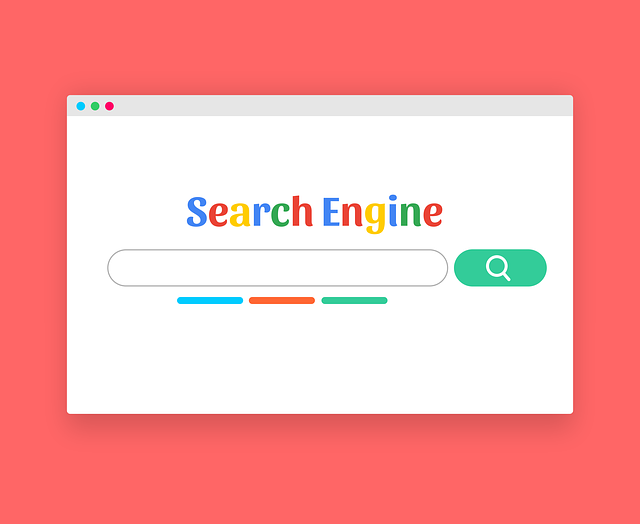Why Businesses Must Use Google Search Engine Optimisation to Balance Local SEO and National Press for Lasting Success
In today’s hyper-competitive business environment, visibility on Google, the most popular search engine, is everything. Whether you’re a local startup or a growing franchise, securing consistent visibility through both local SEO strategies and national press is essential for driving revenue, building credibility, and sustaining long-term growth. Without the right combination of localized search optimization and strategic media coverage, even the most promising businesses risk being overshadowed by competitors.

In the ever-evolving digital landscape, Search Engine Optimization (SEO) has become a cornerstone of effective digital marketing. SEO is the practice of enhancing a website’s visibility on search engines, driving more traffic, and ultimately boosting sales and revenue. As competition in the online space intensifies, understanding the intricacies of SEO is crucial for businesses aiming to stand out. This article will explore the world of SEO, shedding light on its definition, importance, and various strategies that can help improve your online presence.
At VUGA Media Group, with over 500 successful cases, we’ve perfected the art of merging SEO for franchises, earned media, and strategic press to deliver unrivaled exposure on both local and global stages. But for businesses wondering whether to focus on improving their local rankings or investing in national press coverage, the answer is clear: the most successful brands leverage both.
Understanding Search Engine Optimization (SEO)
At its core, SEO is about optimizing your website to rank higher in search engine results pages (SERPs) for specific keywords and phrases. Adhering to Google’s search engine guidelines is crucial for sustainable SEO results. This involves a deep understanding of how search engines work, what users are searching for, and the keywords they use. By strategically optimizing your website for these keywords, you can enhance your chances of appearing at the top of search engine results, thereby driving more traffic to your site and increasing your potential for sales and revenue.
How Search Engines Work

Search engines like Google, Bing, and Yahoo utilize complex algorithms to determine the ranking of websites in their search engine results pages. A search engine crawler is responsible for indexing web pages, ensuring they appear in search results. These algorithms consider a multitude of factors, including keyword usage, link equity, user experience, and technical optimization. When a user enters a search query, the search engine’s algorithm sifts through indexed data to present a list of relevant websites. These websites are then ranked based on their relevance, authority, and user experience, with the most pertinent results appearing at the top of the search engine results page.
Keyword Research and Planning
Conducting keyword research for effective local and national SEO
Keyword research is the backbone of any successful search engine optimization (SEO) strategy. It involves identifying the terms and phrases that potential customers use when searching for products or services online. By understanding these search queries, businesses can tailor their content to meet the needs of their audience, thereby improving their visibility on search engine results pages (SERPs).
To conduct effective keyword research, businesses can utilize a variety of tools and techniques:
Google Keyword Planner: This free tool provides insights into keyword search volume, competition, and suggested bid prices. It’s an excellent starting point for identifying high-traffic keywords relevant to your business.
Ahrefs: Known for its comprehensive SEO capabilities, Ahrefs offers keyword research, backlink analysis, and content optimization features. It helps businesses uncover keyword opportunities and understand their competitive landscape.
SEMrush: An all-in-one SEO tool that provides keyword research, technical SEO audits, and competitor analysis. SEMrush is particularly useful for identifying keyword gaps and optimizing content strategies.
Moz Keyword Explorer: This tool offers keyword research, SERP analysis, and content optimization features. It helps businesses find high-potential keywords and understand their ranking potential.
When conducting keyword research, consider the following factors:
Search Volume: The number of searches a keyword receives. High search volume keywords can drive significant traffic, but they often come with high competition.
Competition: The number of websites competing for a keyword. Balancing high search volume with manageable competition is key to effective keyword targeting.
Relevance: Ensure the keywords are relevant to your business and the content you plan to create. Irrelevant keywords, even with high search volume, won’t drive qualified traffic.
Long-Tail Keywords: These are more specific phrases that typically have lower search volume but higher conversion rates. They are less competitive and can attract highly targeted traffic.
Local Keywords: For businesses targeting local customers, incorporating geographic-specific keywords is crucial. These keywords help capture local search traffic and improve local SEO performance.
By conducting thorough keyword research, businesses can create targeted SEO strategies that drive qualified traffic, improve online visibility, and ultimately boost sales and revenue.
On-Page SEO

Optimizing website elements to support SEO strategies
On-page SEO is the practice of optimizing individual web pages to rank higher in search engine results pages (SERPs) and attract more relevant traffic. This involves fine-tuning various elements of a web page to ensure they align with search engine algorithms and user expectations.
Key elements to optimize for on-page SEO include:
Title Tags: The title of a web page that appears in search engine results. It should be concise, include the primary keyword, and accurately reflect the page’s content.
Meta Descriptions: A brief summary of a web page’s content that appears in search engine results. It should be compelling and include relevant keywords to encourage click-throughs.
Header Tags (H1, H2, H3, etc.): HTML tags that define the structure and hierarchy of a web page’s content. Using header tags helps search engines understand the main topics of your content.
Content Optimization: Creating high-quality, engaging, and informative content that targets specific keywords. Content should be valuable to the reader and optimized for search engines.
Image Optimization: Ensuring images are properly sized, compressed, and include descriptive alt text. This improves page load times and helps search engines understand the content of images.
Internal Linking: Linking to other relevant pages on your website. This improves user experience, helps search engines crawl your site, and distributes page authority.
Mobile-Friendliness: Ensuring your website is optimized for mobile devices. A mobile-friendly site provides a better user experience and is favored by search engines.
To optimize these elements, businesses can follow these techniques:
Keyword Research: Identify relevant keywords and phrases to target in your content.
High-Quality Content: Create content that is informative, engaging, and optimized for your target keywords.
Optimized Title Tags and Meta Descriptions: Craft compelling and keyword-rich title tags and meta descriptions.
Descriptive Alt Text for Images: Use alt tags and descriptive text to help search engines understand your images.
Clear Internal Linking Structure: Develop a logical and user-friendly internal linking structure.
Mobile Optimization: Ensure your website is responsive and provides a seamless experience on mobile devices.
By optimizing these on-page elements, businesses can improve their search engine rankings, attract more qualified traffic, and enhance their online visibility.
The Importance of Local SEO
Local SEO is a vital component of search engine optimization, particularly for businesses targeting local customers. With Google searches increasingly conducted on mobile devices, having a mobile-friendly site is crucial for better visibility. With the proliferation of mobile devices and voice search, local SEO has gained unprecedented importance. By optimizing your website for local SEO, you can improve your chances of ranking higher in local search results, thereby driving more traffic to your site and boosting sales. This involves strategies like optimizing Google Business Profiles, creating location-specific landing pages, and generating localized content that resonates with the community.
The Role of National Press in SEO
National press can significantly enhance a website’s SEO by bolstering its authority and credibility. Incorporating search engine marketing (SEM) strategies can further enhance your digital marketing efforts. When a website is featured in national press, it often attracts high-quality backlinks from reputable sources, which can improve its ranking in search engine results. Additionally, national press coverage increases a website’s visibility and reach, driving more traffic and ultimately boosting sales and revenue. This dual benefit of enhanced authority and increased traffic makes national press an invaluable asset in any comprehensive SEO strategy.
Balancing Local SEO and National Press
While local SEO is crucial for capturing local customers, national press plays a pivotal role in establishing a website’s authority and credibility. To strike a balance between the two, businesses should focus on creating high-quality content that appeals to both local and national audiences. By optimizing their website for local SEO and producing content that resonates on a national level, businesses can enhance their online visibility, drive more traffic, and ultimately boost their sales and revenue. This integrated approach ensures that businesses can thrive both locally and nationally, leveraging the strengths of both local SEO and national press.
How Much Does Local Newspaper Advertising Cost vs. National Media Exposure?

Many businesses exploring traditional advertising often ask, how much is a newspaper advertisement? The answer varies significantly based on region, circulation, and placement. On average, the cost of local newspaper advertising can range from a few hundred to several thousand dollars for a single print run. Search engine traffic plays a crucial role in generating returns on investment for businesses. Factors that influence local newspaper ad cost include ad size, color usage, and the day of the week the publication is distributed.
While local newspaper ads may provide some brand visibility, they lack the SEO benefits and lasting digital footprint of national press features. Unlike print ads that vanish after one edition, earned media coverage in online national publications creates permanent backlinks, drives ongoing search traffic, and boosts domain authority—delivering an ROI that far exceeds the advertising costs in local newspaper campaigns.
At VUGA Media Group, we help brands invest in media strategies that extend beyond fleeting advertisements, positioning them as thought leaders through features in Forbes, Entrepreneur, Rolling Stone, and other global outlets. This strategy creates an ongoing impact that supports both local SEO and international recognition.
SEO for Franchises: Why Local SEO Is No Longer Optional
For franchise businesses, SEO for franchises is crucial. Search history plays a crucial role in local SEO by personalizing search results based on user preferences. Localized SEO ensures that each franchise location ranks for region-specific search queries, driving foot traffic and local sales. Without a strategic local SEO plan, franchises risk losing business to competitors with stronger online presence.
Optimizing local SEO includes:
Claiming and updating Google Business Profiles for each location.
Creating location-specific landing pages optimized with geographic keywords.
Generating localized content that speaks to community needs.
Securing backlinks from local media and high-authority publications.
At VUGA Media Group, we take SEO for franchises further by integrating local strategies with national media campaigns. By securing press coverage that links back to franchise-specific pages, we drive authority to both the overarching brand and its individual locations. This layered approach ensures franchises dominate local search results while gaining national visibility that builds trust and recognition.
National Press vs. Local Visibility: Why You Need Both
While local newspaper ad cost considerations focus on small, regional reach, national press has the power to elevate your brand to the next level. Local SEO makes sure your business is found nearby, but national press ensures that your brand is seen as an authority across industries.
The power of national press:
Boosts global credibility.
The web and search engines have transformed how businesses engage with global audiences.
Provides high-authority backlinks for SEO.
Attracts investors, partners, and new customers.
Builds industry authority through thought leadership.
Meanwhile, the power of local SEO:
Drives nearby customers to physical locations.
Secures visibility for “near me” and geographic searches.
Builds loyal regional followings.
Increases local market share.
At VUGA Media Group, we don’t force brands to choose. We build hybrid campaigns that deliver hyper-local SEO impact while ensuring your name is seen in the world’s most prestigious media outlets. This is the strategy that keeps businesses growing, scaling, and leading their industries.
SEO Tools and Resources

The Long-Term ROI of National Press Coverage
When businesses debate between local visibility and national press, the conversation often revolves around budget. The World Wide Web serves as the primary platform where search engines operate, retrieving information from vast databases. Many wonder if the cost of local newspaper advertising is justified or if national press will offer better returns. The reality is that national press does far more than a one-time ad purchase ever could. Unlike local newspaper ad cost, which buys temporary attention, national press coverage builds lasting brand equity.
When your business is featured in global outlets like Forbes, Entrepreneur, or Rolling Stone, you earn:
Permanent, high-authority backlinks to your my business website.
Enhanced domain authority that benefits your SEO for years.
Social proof that builds immediate trust with new customers.
Opportunities for syndication across other media outlets.
A competitive advantage in saturated markets.
This is why VUGA Media Group prioritizes earned media strategies. We secure guaranteed press placements in top-tier publications that not only provide invaluable exposure but also support your local SEO Google My Business performance through strategic linking and brand mentions. The result? A comprehensive visibility strategy that pays dividends long after the initial feature.
The Secret to Combining Local SEO with National Press
Most businesses assume they must choose between focusing on SEO for franchises or gaining national media attention. The truth is, the most successful brands combine both approaches. While Google dominates, other search engines also play a role in the search engine landscape. Why? Because local SEO and national press amplify each other when properly integrated.
For example:
A feature story in a national publication boosts your site’s authority, which helps your Google business profile SEO rank higher.
Local SEO ensures your individual locations appear in geographic searches, capturing customers who are ready to buy.
National press introduces your brand to new markets, while local SEO converts that interest into action at the regional level.
At VUGA Media Group, we execute strategies that link local and national tactics into a seamless plan. We ensure every media feature is optimized with the right keywords, every backlink is pointing to relevant franchise pages, and every story works as part of a larger visibility ecosystem. This is what creates long-term, sustainable growth.
Industries That Need Both Local SEO and National Press

While every business benefits from improved visibility, certain industries rely heavily on the combined power of local SEO and national media coverage to succeed:
Hospitality: Hotels and restaurants need local searches for foot traffic and national exposure to attract tourists.
Real Estate: Agents thrive when they dominate local markets while being featured as experts in global publications.
Healthcare: Clinics require trust at the local level and validation in national outlets to build authority.
Retail: Physical stores need local SEO, while eCommerce operations thrive with national press.
Franchises: Multiple locations require regional visibility, while the brand as a whole benefits from industry recognition.
For these industries and more, VUGA Media Group creates customized, data-driven campaigns designed to dominate both local search results and the national media conversation. The result is comprehensive coverage that makes brands impossible to ignore.
How Earned Media Enhances SEO for Franchises
Franchises face unique challenges when trying to build unified brand authority while ensuring each location thrives locally. Standard SEO for franchises may help individual locations rank in local searches, but without national media validation, the overarching brand often struggles to gain industry-wide recognition.
This is where earned media comes in. National press features don’t just serve to promote the franchise as a whole; they directly strengthen local SEO performance. When reputable outlets link back to your Google My Business profiles or regional landing pages, Google sees these signals as proof of authority, helping those local pages rank higher.
At VUGA Media Group, we integrate:
National press features with localized backlink strategies.
Thought leadership articles that promote franchise leadership while driving traffic to individual location websites.
SEO-enhanced media coverage that sustains local search dominance.
By combining earned media with local SEO Google My Business strategies, we ensure that both the parent brand and its locations grow in tandem, capturing new markets and maintaining long-term visibility across regions.
Why Brands Can’t Rely on Local SEO Alone
For businesses that focus purely on local visibility, growth often plateaus. While local SEO Google My Business optimization brings in regional traffic, it has its limits. Without authority signals from national media, local rankings stagnate, and brand trust remains confined to a limited market.
National press solves this problem by:
Validating your business through features in globally recognized outlets.
Attracting organic backlinks that boost your domain authority.
Introducing your business to new audiences beyond your local area.
Driving sustained referral traffic that complements local searches.
At VUGA Media Group, we bridge this gap. We ensure that businesses don’t just show up in local newspaper ads or Google Maps—they become permanent fixtures in the industries they serve. By merging national press strategies with hyperlocal SEO tactics, we create growth systems that keep working long after traditional advertising stops.
Conclusion: Why the Future Belongs to Businesses Using Both SEO and PR
The choice between local SEO and national press is a false one. To thrive in today’s digital-first economy, brands must dominate both their backyard and the global stage. Combining search engine optimization Google My Business with earned media coverage ensures your business ranks well locally, earns industry respect, and gains the trust of new customers around the world.
At VUGA Media Group, we specialize in making this happen. With over 500 successful campaigns worldwide, we deliver comprehensive strategies that combine local SEO expertise with guaranteed global press placements. The result is a complete ecosystem of visibility designed to drive leads, revenue, and authority for years to come.
For businesses serious about growth, the time to invest in both local SEO and national press is now. With VUGA Media Group, you don’t just compete—you lead.





